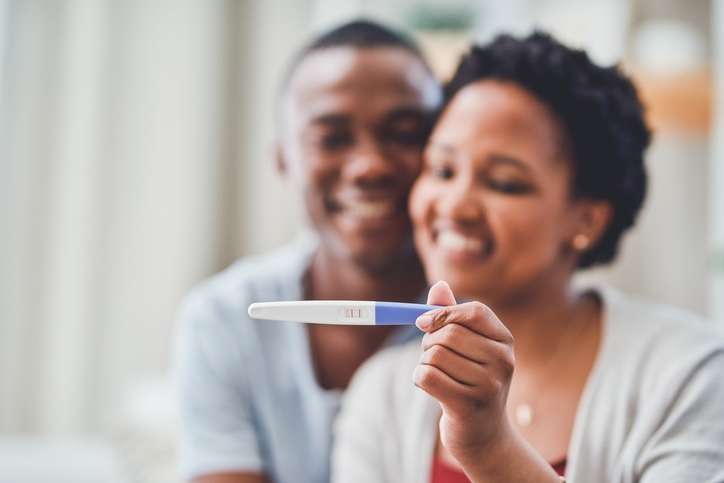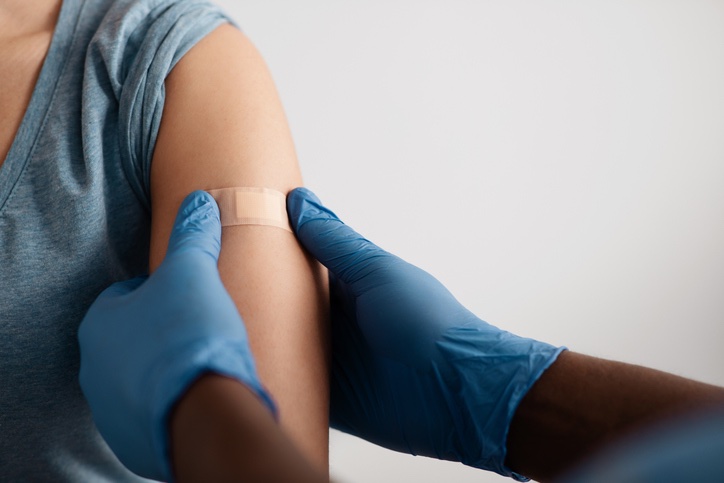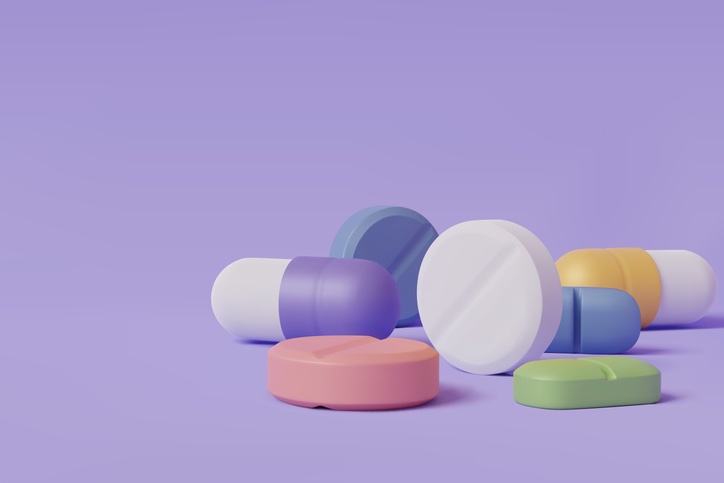The 10-Step Guide to Follow Before You Try Getting Pregnant

Most women know that a healthy body and lifestyle are vital during pregnancy, but did you know that preconception health can be just as important? Before you actively start trying to conceive, follow these steps to help prepare your body for a healthy pregnancy!
1. Schedule a Checkup

Even if you feel healthy, schedule a preconception visit with your doctor or gynecologist to discuss your current health. Your doctor will probably want to review your family history, any medical conditions you have, medications you are on and any vaccinations you might need. (Here is a full list of questions to ask your doctor during this appointment.)
They'll likely also discuss your weight, current diet and exercise, menstrual cycle, and any unhealthy habits you have, like smoking or drinking. This appointment is also a great time to ask questions, so don't be shy!
You can also ask your doctor if there are any tests they can do to check for infertility. From there, they will be able to refer you to a fertility specialist if necessary.
You may also want to consider scheduling a check up for your partner. Male fertility and health are just as important as your fertility when trying to get pregnant!
While you're at it, schedule a dentist appointment, too. Hormonal shifts make pregnant women more susceptible to tooth decay, bleeding gums, and periodontal disease, so it's important to keep your oral health on track.
The initial check up is a great start. There are other steps to take that might involve your doctor…
2. Be Up to Date on Your Vaccinations

Some infections can harm your baby if you catch them during pregnancy. There are certain vaccinations that you should avoid getting pregnant for a certain amount of time after having, so it’s important to consult your doctor about your vaccination history before trying to conceive.
3. Do the Obvious: Toss Your Birth Control!
If you are on a hormonal contraceptive, like the pill, ring or patch, it's time to toss it! In most cases, there is no need to wait until the end of a cycle - you can stop whenever you are ready and will likely get a breakthrough bleed within a few days. Your cervical mucus may likely change because while your body processes this change in hormone levels, and that's absolutely fine.
It can take a while to return to your normal cycle. But you may also be surprised at how quickly your ovaries and fallopian tubes burst back into life! Although there is no need to wait a set amount of time before trying to get pregnant, it's important to know that while fertility returns for most women within a few days, it might take a month (or longer) for you to start ovulating again, and if you are on Depo-Provera, it can take up to a year from your last shot. It’s different for everyone.
Some healthcare professionals recommend waiting until your periods become regular before trying to conceive, but this is only to make it easier to determine your due date. Being on a regular cycle also makes it easier to calculate and measure your fertile windows, ovulation, and basal body temperature.
4. Check Your Other Medicines

Not all medications are safe to take during pregnancy. If you take a prescribed medicine and you're planning to get pregnant, talk to a doctor. It’s vital that you do not stop taking your medication until you have spoken to your healthcare provider.
5. Start Taking Folic Acid
Start taking 400 micrograms of folic acid every day at least one month before you start trying to get pregnant. According to the Centers for Disease Control (CDC), if a woman has enough folic acid in her body one month before and during her pregnancy, it can help reduce the risk of major birth defects in the baby's brain and spine by 50 to 70 percent.
Taking certain prenatal vitamins and supplements before and during pregnancy are essential in keeping yourself and your baby healthy! You can discuss the best vitamins and doses to take with your doctor, midwife, or OBGYN.
6. Stop Smoking and Drinking Alcohol
Smoking and drinking alcohol can make it harder for you to get pregnant, and they also increase the risk of harm to your potential baby.
Smoking during pregnancy has been linked to a variety of health problems, including premature birth, low birth weight, sudden infant death syndrome (SIDS), (also known as cot death), and miscarriage.
It's best to stop smoking and drinking before you start trying to conceive. Talk to your healthcare provider or contact your local treatment center if you think you need help quitting. Quitting can be hard, no matter how much you want to, but there is support out there.
Smoke from other people's cigarettes can actually damage your baby, so you should ask your friends and family not to smoke around you.
You should also avoid environmental contaminants and toxic substances, such as synthetic chemicals, metals, fertilizer, bug spray and cat or rodent feces, as well. According to the CDC, exposure to even small amounts of these substances during pregnancy can be harmful, and can hurt the reproductive systems of men and women, which can lower your chances of conception.
7. Cut Back on Caffeine

If you've got a serious caffeine addiction, it's time to cut back. Most experts agree that small amounts of caffeine are safe to consume while trying to conceive and to drink during pregnancy, but that you should limit yourself to no more than 200 milligrams (about one 12-ounce cup) a day.
8. Exercise and Eat Right!
Being over or underweight can make it harder for some women to get pregnant. And if you're overweight or obese, you're at a higher risk for complications during pregnancy, such as type 2 diabetes, heart disease, and certain cancers. Reaching and maintaining a healthy weight can help reduce these risks. Talk to your doctor or healthcare provider about exercising safely, and how to maintain a healthy, balanced diet before, during, and after your pregnancy.
Dr. Chole Zara of Brigham and Women's Hospital in Boston also recommends reducing your fish and seafood consumption, since these foods contain mercury and can cause birth defects when eaten in large amounts. Follow their recommendations by eating no more than 12 ounces of fish per week, and avoid eating ocean fish like shark and tilefish. You should also try and limit your tuna intake to one can or steak per week.
It’s also important that your partner exercises and maintains a healthy lifestyle when you’re trying to conceive to give you the best chance of conception.
9. Research Your Family History

Some diseases can be genetic, so share any known family history with your doctor. They might recommend genetic carrier screening to see if you or your partner is a carrier for any inherited diseases such as cystic fibrosis or sickle cell disease. If you or your partner is found to be a carrier, a genetic counselor can help you discuss your reproductive options.
10. Try to Reduce Your Stress Levels
Low stress levels might make it easier to get pregnant. Make sure you get plenty of rest and sleep when you can. Ask your doctor or midwife for relaxation techniques and ways to reduce stress in your everyday life. These tips will also come in handy during (and after) your pregnancy.